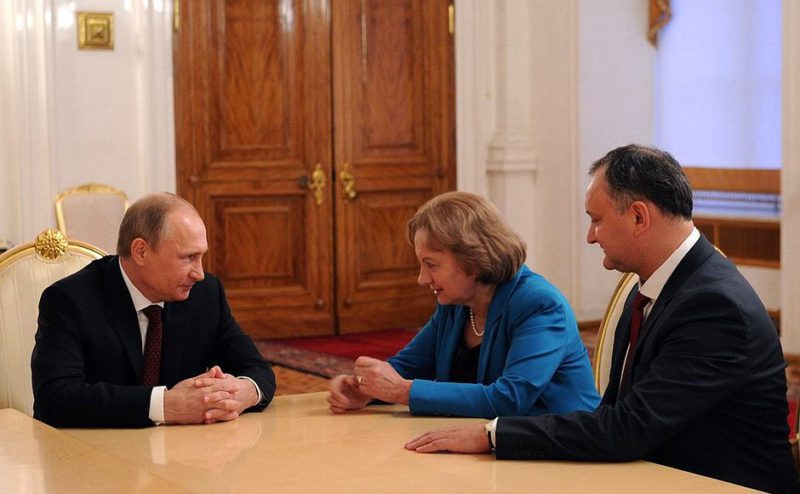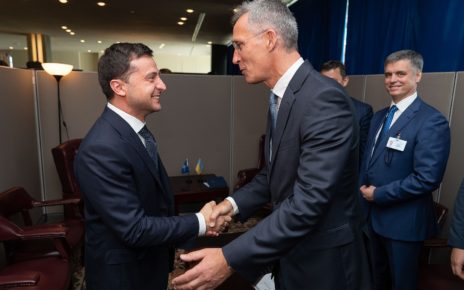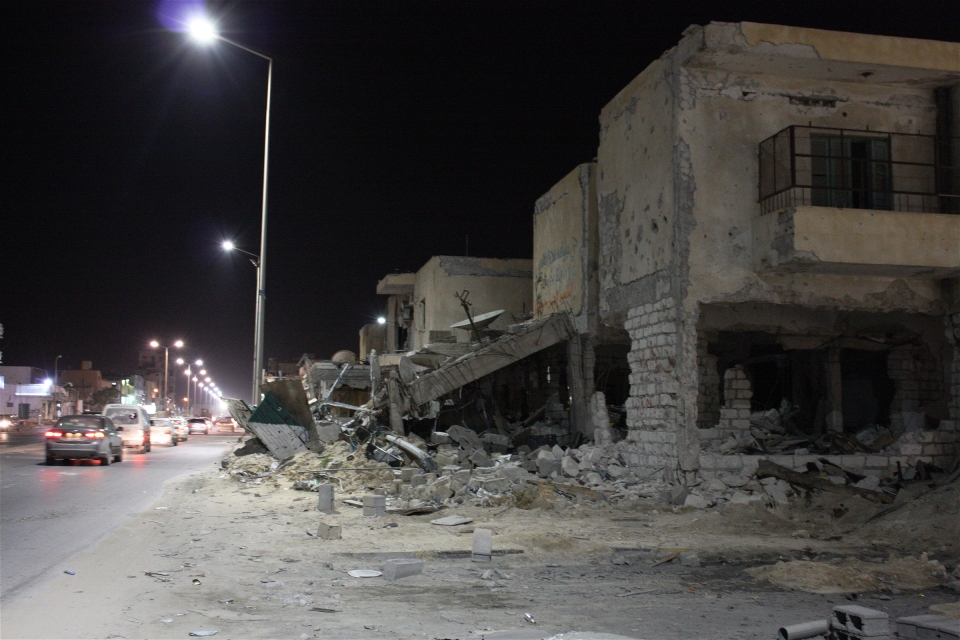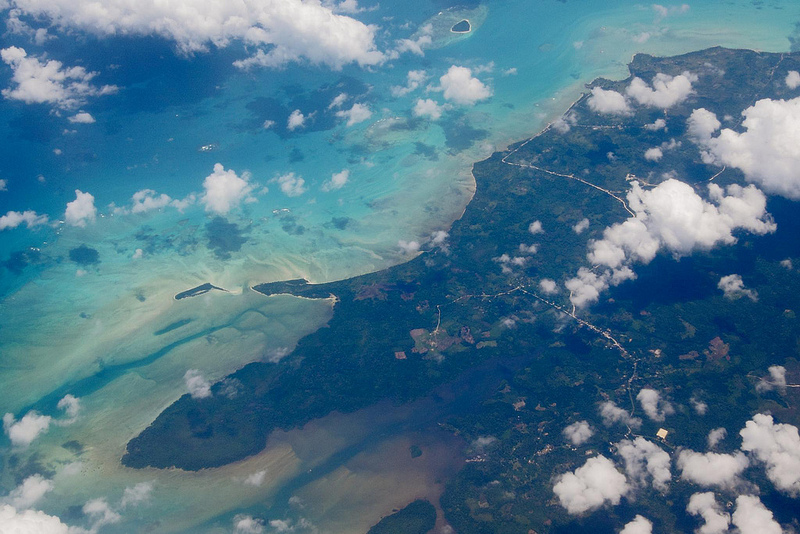It has been a pretty good month for Vladimir Putin. While not as globally consequential as Donald Trump’s U.S. election victory, two recent elections in Eastern Europe have led Western observers to once again lament the precarious future of the European project. Bulgaria and Moldova, two former Soviet satellite states, both elected pro-Russian presidents this past month. In Bulgaria, Socialist Party’s Rumen Radev won a resounding victory, prompting centre-right Prime Minister Boyko Borisov to resign in protest; in Moldova, Igor Dodon, leader of the Socialists, beat out a pro-Western candidate in the country’s first direct presidential election since 1996. The way each president governs could determine whether Bulgaria and Moldova tilt towards Moscow amid a growing wave of euroskepticism.
In Bulgaria, the anti-migrant, pro-Moscow message of Radev struck a chord with voters increasingly disillusioned with European Union (EU) membership. In addition to being the EU’s poorest member, the country is also its most corrupt. Voters have grown hostile towards refugees and Islam, and public anger has grown over thousands of migrants currently stranded in Bulgaria. Radev has capitalized on this, promising to fight corruption, strengthen the country’s borders and upgrade the military. He has also made it clear he believes Bulgaria should focus more on its economic and political ties with Moscow and has pledged to improve relations with Russia, arguing that the EU should lift sanctions imposed on Russia for annexing Crimea in 2014. Moscow is one of Bulgaria’s largest trading partners, and the country is highly dependent on Russian gas imports and tourism revenues. His rhetoric resonates with many voters hurt by economic problems who are keen to see restored trade relations. With Radev’s victory, some fear Bulgaria is reconsidering its NATO and EU commitments.
In Moldova, Dodon represents a sharp turn from a more pro-Western orientation that had developed over the past decade. His election reflects the population’s general desire to move away from a corrupt pro-EU leadership in government. The election was dominated by frustration with a prolonged economic stagnation that has left the country with a crippled economy. A 2014 scandal, which involved the theft of $ 1 billion from national banks – equivalent to an eighth of the country’s GDP – highlights the country’s scale of corruption and cultivated a general distrust of pro-EU elites. Dodon’s Socialists have capitalized on this perceived betrayal.
Dodon is known to be pro-Moscow – opposing European unification and favouring membership in the Russian-dominated Eurasian Economic Union. Through this, he wants to tear up a 2014 Association Agreement on trade with the EU. While his Socialists form the largest party in parliament, they are not a part of the country’s current coalition government, headed by pro-EU Prime Minister Pavel Filip. As a result, the way Filip and Dodon govern together will be significant for the country’s direction.
Bulgaria and Moldova appear to be the latest in a series of countries to be swept up by nationalist and anti-globalization sentiments, a trend extending across Europe. Both candidates have campaigned on closer ties to the Kremlin and against Russian sanctions that have been damaging their economies. This shift away from pro-Western parties and towards those seeking warmer relations with Russia certainly offers a glimpse of a growing disillusionment with liberal institutions.
While Russia is bound to take pleasure in these developments, the votes in both countries were influenced almost entirely by domestic factors: public frustration with corruption and living standards that lag behind Western European counterparts. In Bulgaria, anger with Borisov’s government over sluggish and piecemeal reforms to eliminate graft and poverty and overhaul the judicial system convinced voters to spurn his ruling GERB party. In Moldova, too, the election was dominated by anger over a crippled economy and high-level corruption, specifically the 2014 bank fraud case. Resistance to Western liberal attitudes on immigration and LGBT rights, and the fact that sanctions against Russia have in turn hurt their standard of living, were also factors. The elections were thus less an endorsement of Russia than a reflection of economic ties, and there is little evidence voters in either country would embrace a move towards Moscow’s orbit.
Whether either president will effect meaningful change in their country’s political orientation is also uncertain, given how restricted their powers will be. The presidential position in both countries is largely ceremonial, with authority concentrated in the prime minister’s government, which makes most of the key decisions in each country. Dodon’s election pledge to tear up Moldova’s agreements with the EU, for instance, will be ignored because the president cannot cancel such agreements, which are ratified by parliament. More telling will be parliamentary elections, scheduled for early 2017 in Bulgaria and late 2018 in Moldova; the election of Russia-leaning governments may foreshadow a more long-term pivot.
Barring a major political break, however, such a reorientation is improbable. Unlike Moscow – the EU, its member countries and the U.S. give Moldova huge amounts of financial aid, and the country has been dependent on IMF assistance since the 2014 banking theft. Similarly, as a member of the EU and NATO, Bulgaria is very unlikely to quit either organization. Radev has never advocated for Bulgaria to abandon Western alliances and is mindful of the financial impact of EU aid and single-market access. Leaders in Eastern Europe have a long history of playing Moscow and the West against each other, and each candidate’s rhetoric reflects more of a political-economic balancing act than any radical geopolitical shift.
The results in Bulgaria and Moldova have led many Western observers to lament Moscow’s growing influence in Europe, and sensationalize the further disintegration of European cohesion. Yet there remains little evidence voters in either country want to tilt towards Russia, and the power of each president to do so remains tenuous. Still, the victories of Radev and Dodon are bound to add to the sense of political uncertainty hanging over Europe. Such outcomes will raise concerns about the allegiances of former Soviet satellites in Eastern Europe that had recently tilted in favour of the Euro-American alliance. A new crop of leaders who resent EU interference, rally against immigration, and cling to social conservatism are finding common ground with Putin’s Russia. Following the U.K.’s Brexit referendum, Western Europe will also face similar challenges from anti-establishment forces, and upcoming elections in Germany and France will be pivotal. Taken together, these events could very well shake up the liberal world order.
Disclaimer: Any views or opinions expressed in articles are solely those of the authors and do not necessarily represent the views of the NATO Association of Canada.
Photo:With Igor Dodon, leader of the Moldovan Party of Socialists (right) and former Prime Minister of Moldova Zinaida Grechany. (2014), by Official Internet Resources of the President of Russia. Licensed under CC 4.0 International.




